Honorary Fellows
Honorary Fellowship is the highest honour the FFLM can bestow and is awarded to individuals who have made an exceptional contribution to improving education, quality of service, research or raising the profile of forensic and legal medicine.
Sir Robin Auld
Sir Robin Auld became a judge of the High Court in 1987 when he was knighted and was promoted to the Court of Appeal in 1995 when he became a member of the Privy Council and was a Lord Justice of Appeal from 1997 to 2007. In 2004 he agreed to act as a trustee to administer the Trust Fund necessary to create the new Faculty of Forensic and Legal Medicine and he gave the inaugural David Jenkins Lecture in 2006. He undertook a review of the operation of the criminal courts in England and Wales in 1999 to 2001, producing a report known as the "Auld Report". He was the A. L. Goodhart Visiting Professor of Legal Science for 2009-10 at the University of Cambridge.
Professor Roy Beran AM
An Australian Neurologist, Roy also works in legal, military and aviation medicine. He pioneered undertaking research in private practice and is editor-in-chief of Medicine and Law. Roy is Conjoint Professor of Medicine (University of New South Wales), Professor of Medicine (Griffith University), Professor of Medical Law (Sechenov 1st Moscow State Medical University) and was an inaugural Visiting Professor at the International Research Institute of Health Law Sciences (Southern Medical University, Guangzhou). He was a Commander in the Royal Australian Navy Reserves, Past President of the Australasian College of Legal Medicine and Past Secretary General of the World Association for Medical Law.
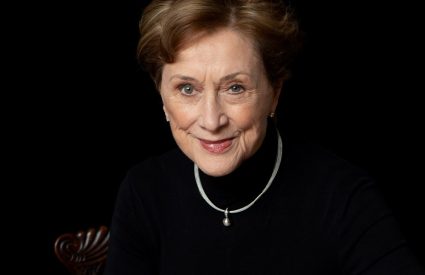
Professor Dame Carol Black
Carol is Principal of Newnham College Cambridge and Expert Adviser on Health and Work to NHS England and Public Health England, she chairs the board of Think Ahead, the Government’s fast-stream training programme for Mental Health Social Workers and is a member of Rand Europe’s Council of Advisers, the Strategy Board for the Defence National Rehabilitation Centre, and the Advisory Board of Step up to Serve. She became chairman of the British Library on 1st September 2018.
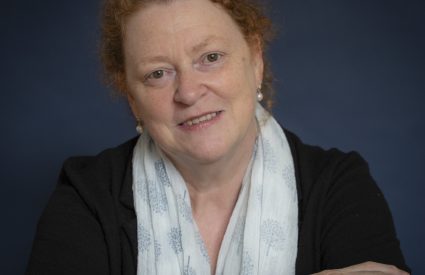
Professor Sue Black
Professor Lady Black is the President of St. John’s College, Oxford. She is an anatomist and a forensic anthropologist. She is best known for her work in human identification following mass fatality events and the identification of perpetrators of child sexual abuse from images. She is a Fellow of the Royal Society, Royal Society of Edinburgh, Royal Society of Biology and Royal Anthropological Institute. She is the lifetime Professor of Anatomy for the Royal Scottish Academy. Her portrait by Ken Currie was purchased for the National Portrait Gallery in Scotland. She is a crossbench peer in the House of Lords. She has been awarded an OBE, a DBE and is a Lady of the Most Ancient and Most Noble Order of the Thistle, a personal gift bestowed by HM the King.
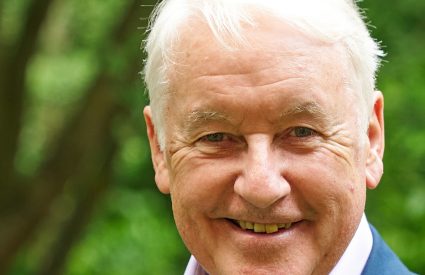
Professor Alan K Boyd
Alan is unique as a researcher and clinician in developing pharmaceutical medicine to the highest of standards and with recognised research programmes and advice on research world wide – attested by his national /interational awards mentioned above.
More importantly he has experience of seeking specialty status and achieving this satisfactorily and now has accepted training programmes between industry and the NHS which are succesful in attracting new recruits -all lessons that apply to forensic and legal medicine.
Dr Margaret Branthwaite
Dr Margaret Branthwaite is a doctor and a barrister. For many years she was on the Consultant staff of the Royal Brompton Hospital, initially as an anaesthetist, later as a general physician, with a particular interest in respiratory medicine. She then had a change of career and went to the Bar, where she practised for ten years or so. She then moved to a variety of other medico-legal work including being an Assistant Deputy Coroner in the Inner-South District of London. The RSM published 'Law for Doctors - Principles and Practicalities'.
Mrs Melanie Brown
Melanie Brown is a Forensic Scientist with an extensive career in forensic science where working both as an operational scientist and a Principal Lecturer in Higher Education, she has made a significant contribution to the profession. She subsequently specialised in DNA profiling and provided DNA training at a national level. Her educational role led to the accreditation of FFLM training courses for forensic practitioners at Teesside University providing much needed and improved access to higher education for forensic practitioners working in either a custody or sexual offence setting.
Dr Olive Buckley
Olive has many years’ experience working in the field of sexual violence. As a survivor of childhood sexual abuse, she was regarded as the victim’s champion, providing a conduit between officials and victims/survivors, who held a central position in identifying the key policy issues and outcomes in Northern Ireland. She became one of the key drivers in the establishment of The Rowan, Northern Ireland’s Regional Sexual Assault Referral Centre. In 2012 she was awarded an OBE for services to victims in Northern Ireland. She has been Clinical Director and Lead Forensic Medical Examiner since The Rowan opened in 2013.
Dr W Rodney Burnham
A graduate of the Adelaide Hospital, Trinity College, Dublin, Dr Burnham held posts in Cambridge, an African Mission Hospital, St Marks Hospital, London and Nottingham University. Dr Burnham founded the first DGH multidisciplinary nutrition team at Old church in 1987. He was the Chair of the London Deanery Specialty Training Committees in both Gastroenterology and General Internal Medicine. He has been Director of the Medical Workforce Unit of the Royal College of Physicians and a member of the SAC in Gastroenterology. As Registrar of the Royal College of Physicians of London (2005-2009) he was instrumental in establishing the Faculty of Forensic and Legal medicine.
Dr Patrick Cadigan
Dr Cadigan worked closely with the Faculty between 2010 and 2014 during his time as Registrar of the Royal College of Physicians of London (RCP). A consultant cardiologist working in the West Midlands, he served the RCP as Regional Adviser and as Linacre Fellow before taking up the Registrar post. As Registrar he represented the RCP at the Francis inquiry and he was an instigator of the influential “Future Hospital” project. In the latter part of his career, he provided expert clinical advice to Monitor and to NHS Improvement.
Dr Myles Clarke DMJ
Assistant Secretary of the Association of Police Surgeons of Great Britain and Editor of their publication, The Police Surgeon Supplement
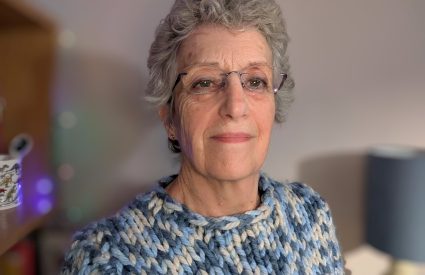
Mrs Cathy Cooke
Cathy is a retired pharmacist with multi- sector practice experience within the community, social care, primary and secondary care, and secure environments. From 2004 to 2021 she was involved in medicines management policy and standards development at a local and national level for prisons and police custody. Cathy has been an Affiliate of the FFLM since 2010 and was a Board member from 2015 to 2022.
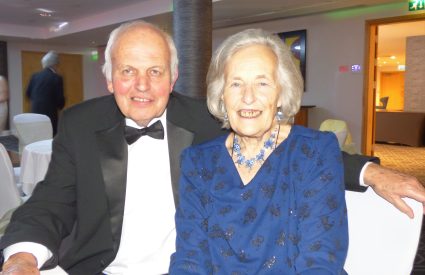
Professor John E Cooper
DTVM FRCPath FRSB CBiol FRCVS
John Cooper started life as a field naturalist, trained as a veterinary surgeon and studied to become a specialist comparative pathologist. His particular interest is the mechanism of disease in different species and the application of this knowledge to the diagnosis of disease and to the provision of sound forensic advice and opinion. His wife, Margaret E Cooper, is a non-practising solicitor with special interests in animal and conservation law. Together they have spent approximately twenty years living overseas, especially in Africa, including a period in Rwanda working with the mountain gorillas. They are now based in Britain, where they teach, publish and provide forensic and other advice. They continue their voluntary work, mainly teaching, in East Africa.

Mrs Margaret E Cooper
Margaret Cooper, LLB, FLS, is a lawyer who qualified originally as a British solicitor and has made the study of animal and conservation law her special interest. With her husband Professor John E Cooper, she has lived in a number of countries including East Africa, the Caribbean, the United Arab Emirates, France and Germany. In 2009 they returned to the United Kingdom from nearly seven years at the University of the West Indies. She lectures and writes on the law relating to animals and allied subjects, including wildlife and veterinary forensics, often in conjunction with her husband.
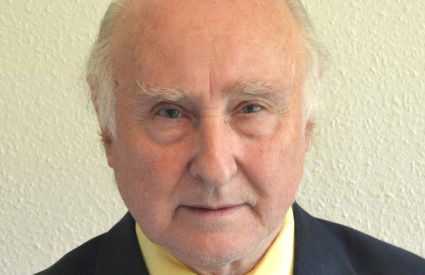
Professor David Croisdale-Appleby
David’s national awards include an OBE in 2009, the Sunday Times Non-Executive Director of the Year in 2016, and the National Charity Governance Award in 2019. An academic polymath, David holds honorary doctorates and visiting and honorary professorships at a number of UK universities in medical education and other fields, and was awarded honorary fellowships from the Academy of Medical Educators where he also a Member of Council, and from the Chartered Society of Forensic Sciences, in which field he was chair of the regulatory organisations for forensic science practitioners.
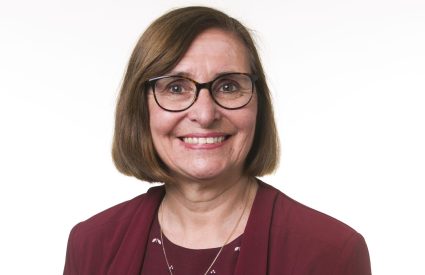
Professor Jane Dacre
Recognised as a leader in medicine, as academic and clinician, and medical education with collaborative and inclusive leadership style, many senior leadership roles in health and education at local and national levels and extensive Board experience. She has practised as an academic consultant rheumatologist and Director of UCL; currently Professor of Medical Education UCL. Immediate Past President of RCP (oldest/2nd largest Medical Royal College) leading RCP through 4 years – 2 prime ministers, 2 general elections, Brexit and the junior doctors’ strike; initiated RCP North development in Liverpool.
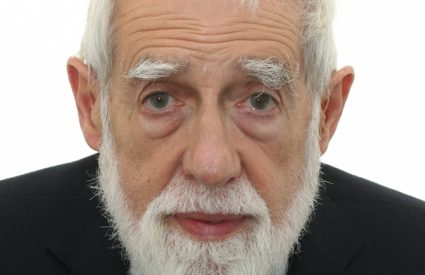
Professor Kevin Dalton
Prof Dalton was appointed consultant in obstetrics and gynaecology at Addenbrooke’s Hospital in 1983.and also served as Cambridge's senior examiner in obstetrics and gynaecology. Until 2014 he often chaired GMC (and on occasion MPTS) Fitness to Practise Panels. He has over 30 years' experience of medico-legal work, for both Defendants and Claimants, and is jointly instructed in some cases. He advises on clinical negligence and personal injury, and has given evidence in civil, criminal, family and coroner's courts. He has a PhD in fetal physiology, an LLM (with Distinction) in medical law, and the Diploma in Forensic Medical Science. Professor Kevin Dalton is an Emeritus Fellow of St Catharine’s College since 1997.
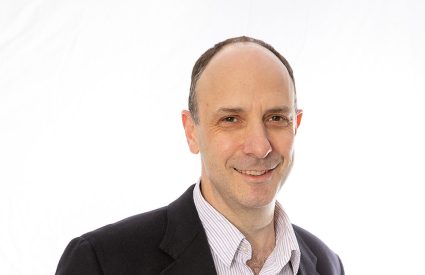
Dr Christopher Danbury
Dr Christopher Danbury is an intensive care physician whose study and practice of health law has enabled him to make outstanding contributions to the education and training of lawyers and doctors, the resolution by courts of dilemmas about continuing or withdrawing life-sustaining treatment and the establishment and maintenance of ethically and legally sound standards for intensive care medicine. He is a consultant at University Hospital Southampton, Visiting Fellow in Health Law at both University of Reading and Kings College, and Honorary Clinical Senior Lecturer, University of Southampton.
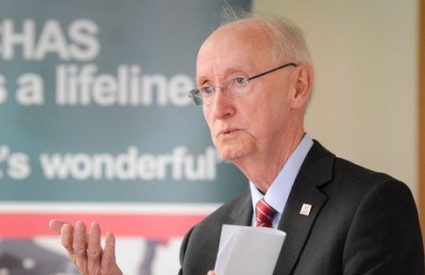
Professor Gordon Dickson
Until he retired in December 2014, Professor Dickson was Chief Executive of the Medical and Dental Defence Union of Scotland (MDDUS). Prior to joining MDDUS, he was Vice Principal of Glasgow Caledonian University. He is a past Chair of the Institute of Risk Management and of the Children’s Hospice Association of Scotland. He served as Vice Chair of Greater Glasgow NHS Board and has held a number of non-executive appointments in the private and public sectors.
Professor Dickson has written several textbooks on Risk Management and travelled extensively delivering lectures and holding seminars on risk management related issues. He continues to act as a mentor to charity CEO’s.
Professor Olaf Drummer
Olaf Drummer is a very distinguished forensic toxicologist whose commitment to teaching, education, service and leadership is second to none. He his a committed researcher, author and editor and has published widely. He is internationally recognised as a leader in his field and is respected worldwide.
Professor Robert J Flanagan
Professor Flanagan is Consultant Clinical Scientist, Precision Medicine, King’s College Hospital NHS Foundation Trust and Visiting Professor in Psychosis Studies, Institute of Psychiatry, Psychology, and Neurology, King’s College London. He has published over 250 scientific papers and five books. Particular interests have been the treatment of mental illness especially as regards the use of antipsychotics, notably clozapine, and the diagnosis of substance abuse, especially the misuse of volatiles such as butane. He has acted as a consultant to the United Nations Office for Drugs and Crime and to the World Health Organization. He is immediate past-President of the British Academy of Forensic Sciences.
Sir Robert Francis QC
Robert Francis is a member of Serjeants Inn Chambers, a set specialising in medical law. In my time as a medico-legal adviser with the MPS he was instructed many times to look after doctors who faced claims or GMC complaints and he was always a dependable, friendly counsel. More recently, he has been involved in important and complex legal cases and he has chaired health-related public inquiries including the Mid-Staffordshire inquiries. For the last 2 years he has been President of the Medico-Legal Society and has been instrumental in bringing its constitution and standing orders up-to-date.
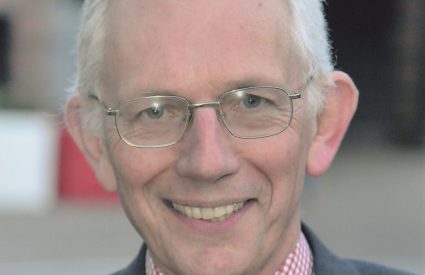
Professor Sir Ian Gilmore
Professor Sir Ian Gilmore is an honorary consultant physician at the Royal Liverpool University Hospital and holds an honorary chair at the University of Liverpool. After training in Cambridge, London and the USA, he moved to Liverpool as a consultant in 1980. He is past-president of the Royal College of Physicians (RCP) and the British Society of Gastroenterology and chaired Liverpool Health Partners, created to promote an Academic Health Science System in Liverpool, for six years. He chairs the UK Alcohol Health Alliance and the Department of Health Prescribed Specialised Services Advisory Group. He is a member of the Climate and Health Council.
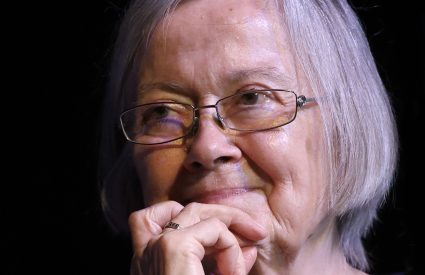
Baroness Brenda Hale
Lady Hale has made many contributions to legal texts and periodicals, including for example, ‘A pretty pass: when is there a right to die?’ (CLWR 2003 32(1): 1-14) and ‘Respect for human dignity’ (Int JLC 2014 10(1):26-46).
She is also the author of Parents and Children (4th edn 1993 and The Family, Law and Society – Cases and Materials (6th edn 2008) and Women and the Law (1984).
In her 2006 Longford Lecture ‘The sinners and the sinned against: Women in the criminal justice system’ she discussed the special needs of female prisoners who, more than male prisoners, are likely to be the victims of physical and sexual abuse and more likely to have mental health problems.
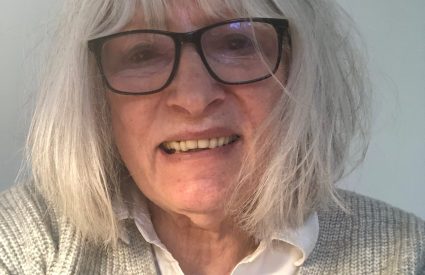
Ms Angela Hall
July Board Approval
Angela is Emeritus Reader in Clinical Communication at St George's University of London and is the Faculty's Educational Advisor. Her commitment to clinical education and assessment comes from a background as a nurse. She went on to obtain qualifications in Psychology, Sociology and Counselling. She has a wealth of experience in a number of clinical settings, both undergraduate and post-graduate. Her enthusiam for and commitment to the examinations has helped develop a cohort of committed examiners and candidates who have commented that the OSCEs are 'really good' and 'enjoyable'.
Dr Helen Hammond
Oxford graduate and Fellow of the Royal College of Paediatrics and Child Health (RCPCH), Helen Hammond is a retired Consultant Paediatrician. She championed interagency working for child sexual abuse cases in Scotland. In 1998 Dr Hammond undertook an MSc in Forensic Medicine at Edinburgh University and subsequently gave expert opinion on infant child abuse cases. As RCPCH representative she assited in the development of the Diploma in Forensic and Clinical Aspects of Sexual Assault in collaboration with the Society of Apothecaries which led to the development of the membership examination for the FFLM. She was a lead examiner for the OSCE until she fully retired in 2017.
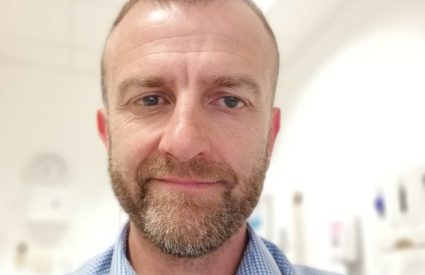
Mr Kevin Hayes
Mr Kevin Hayes is a Consultant and Reader in Obstetrics and Gynaecology and Medical Education at St Georges, University of London. He was an External Examiner for FFLM examinations for 2012 to 2020. His advice and guidance on examination practices at all times enshrined fairness to candidates, high standards and best practice.
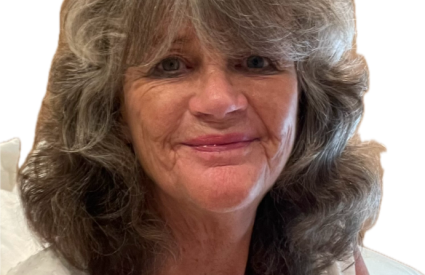
Dr Judith Hinchliffe
Judith has worked around the world as a member of the Disaster Victim Identification teams for the United Kingdom and New Zealand and now continues with casework in Australia. Her longstanding affiliation with Forensic Physicians enabled her to assist with recognition and analysis of bitemarks in the living and deceased. Judith was the first female president of the British Association for Forensic Odontology and is a Fellow of the Faculty of Oral and Maxillofacial Pathologists, Royal College of Pathologists of Australasia. She has had articles published in peer-reviewed journals and contributed to textbooks and continues to lecture nationally and internationally.
Dr Josephine Howitt
Dr Josephine Howitt was Principal Forensic Medical Examiner in South London undertaking both the general work and sexual assault. She brought attention to the poor conditions of detention of Home Office prisoners in police and magistrates court cells during prison overcrowding. A comparison of forensic medical services between Melbourne and London followed a sabbatical year spent as FMO. in Melbourne Australia. The adult sexual assault chapter in Clinical Forensic Medicine was co-written with Dr Debbie Rogers. An active member of The Association of Police Surgeons and a council member (forensic and legal section) of the Royal Society of Medicine.
Dr Andrew Hoyle
Andrew is an advocate for medico-legal advisors. Holding a Licence to Practise with the General Medical Council and a Practising Certificate with the Bar Standards Board, he is the Head of Medico-legal Services for part of the UK government. He is a firm believer in the unique capabilities MLAs can bring to an organisation by applying medical law to clinical processes thereby improving patient pathways and reducing organisational liability.
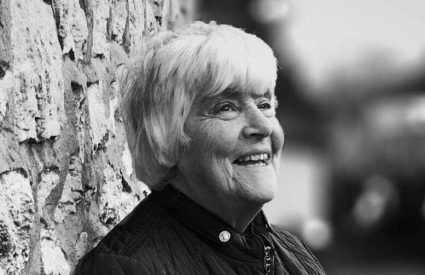
Dr Eva Jacobs
Eva Jacobs entered medicine by the somewhat unusual route of a first degree in English Language and Literature followed by teaching in girls’ secondary schools. She then had the chance to take an MBChB at Manchester University, and while starting her career as a GP, was lucky enough to be recruited and trained by Dr Raine Roberts as she set up St Mary’s Sexual Assault Referral Centre. Eva spent the next 21 years, till her retirement, combining General Practice and Forensic Medicine and felt honoured to be elected a Fellow in recognition of her work in Forensic Medicine.
Professor Bernard Knight CBE
Bernard Henry Knight CBE is a British forensic pathologist and writer. He became a Home Office pathologist in 1965 and was appointed Professor of Forensic Pathology, University of Wales College of Medicine, in 1980.
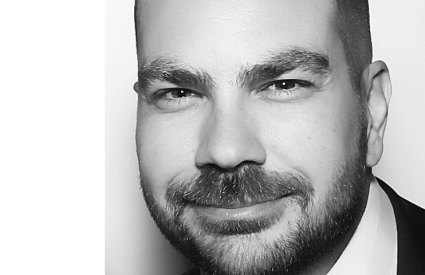
Professor Nikolas P Lemos
Professor Nikolas Lemos is Professor of Forensic Medical Sciences at Barts and The London and Visiting Professor of Toxicology at Saint Louis University and Athens University. He has co-authored over 85 papers, abstracts, and book chapters including seminal studies of Cannabis in Postmortem Toxicology and alternative biological specimens. He has previously served as Science Editor of “Medicine, Science and the Law,” and currently serves as Ethics Committee Chair of the California Association of Toxicologists and as Diveristy and Outreach Chair of the American Academy of Forensic Sciences.
Dr Carl Leung
Dr Carl Leung is a pioneer in Forensic Odontology in Hong Kong, China, and South East Asia. He has been working in the field since 1988. He is the first Chinese forensic dentist. He has a major influence in the training and development in forensic science in the region. He has been appointed as the first Honorary Professor of Forensic Science of Tung Wah College in HKSAR. Apart from his clinical duties, Dr Leung has been appointed to committees to government hospitals, Traditional Chinese Medicine clinics, and many other Rehabilitation services. He is dedicated to helping the underprivileged in the region.
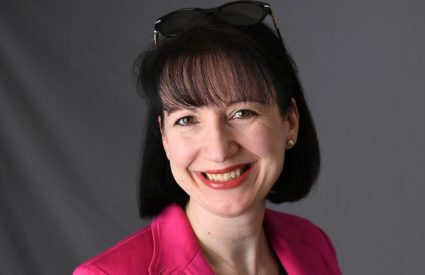
Dr Suzy Lishman
Suzy is eminent in her field, influential in promoting the highest of standards of practice, advised on, and supported, the forensic and legal medicine specialty application. For her role in pathology nationally/internationally, she was awarded the CBE and honoured by many other institutions. She masterminded the design of the new RCPath building opened in October 2019. She continues in active practice and in her role developing Medical Examiners in ensuring an accurate system of death certification and appropriate referrals to the Coroner as well as supporting bereaved families.
HHJ Mark Lucraft QC
Mark Lucraft is the Chief Coroner, having judicial oversight of the coroner system in England and Wales. He combines this role with his role as a judge of the ‘Old Bailey’, the Central Criminal Court in London. He has overseen the training programme for coroners and has produced and revised much-needed guidance. He has secured and maintained the trust and confidence of coroners at a time of much societal change and limitation of resources. Very recently he has been appointed Recorder of London, the most senior judicial appointment in the City and will fulfill this role whilst continuing as Chief Coroner.
Mr Tony Mason
Tony is an actuary and has specialised in the field of clinical negligence for over 35 years. As a consulting actuary at Lane Clark & Peacock, where he was the Managing Director, he advised mutuals, insurers and governments across 5 continents. He helped design the Clinical Negligence Scheme for Trusts and was the actuary to the NHSLA (now NHS Resolution) for 15 years until 2007 when he became Chief Executive of the Medical Protection Society. Since retiring from full-time employment, he works as an international consultant and is a non-exec director of a medical defence mutual in Australia.
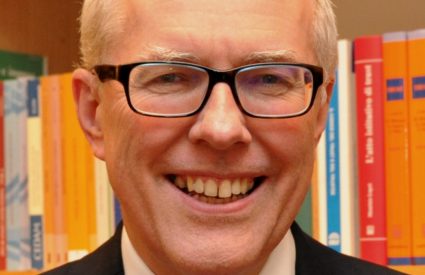
HHJ Paul Matthews
Paul Matthews has made a major contribution to Coroners, first as a solicitor-advocate in representing them at Judicial Reviw hearings in the High Court, secondly as the editor ofseveral editions of several editions of the leading textbook on coroner law and thirdly as a practitioner coroner for many years in the City of London as deputy to Dr Bob Chambers and then as his successor as senior coroner.
Baroness Molly Meacher
Molly Meacher was appointed a Cross-Bench Peer in 2006. She was a Board Member and Deputy Chairman of the Police Complaints Authority in the 1990s, having worked in mental health over many years. She has been the Chair of the All-Party Parliamentary Group for Drug Policy Reform for eight years and helped to secure a more flexible approach to drug policy by the United Nations. This year, after a long campaign by the All-Party Parliamentary Group, the UK Government agreed to legalise medical cannabis for some conditions. The regulations are expected very soon.
Professor Alan Merry
Alan is an anaesthetist and specialist in chronic pain management in Auckland. He co-founded the New Zealand Medical Law Reform Group, whose advocacy led to the introduction of a “major departure standard” for negligent manslaughter in New Zealand. This contributed to the development of today’s effective and just regulatory environment for healthcare in New Zealand. Alan’s research and writing (including his co-authored book, Merry and McCall Smith’s Errors, Medicine and the Law, 2nd Edition, Cambridge University Press 2017) focusses on improving patient safety, which he believes is the best way to reduce the medico-legal aftermath of avoidable harm in healthcare.
Dr Padmini Mishra
MBBS FRCOG FRCGP FFSRH MNAMS Hon FFFLM
Mini is a Senior Medical Officer for the Scottish Government, providing leadership to several multiagency programmes. Mini specialised in Obstetrics and Gynaecology and General Practice. She was also the Principal Forensic Physician and clinical tutor for primary care in London and Cambridge Universities. Mini has extensive experience and expertise in healthcare management to improve the quality of healthcare and reduce inequalities, including the transfer of responsibility for the healthcare of prisoners from Scottish Prison Service to Health Boards, the transfer of healthcare and forensic medical services from Police Scotland to Health Boards, and the respectful management of the deceased.
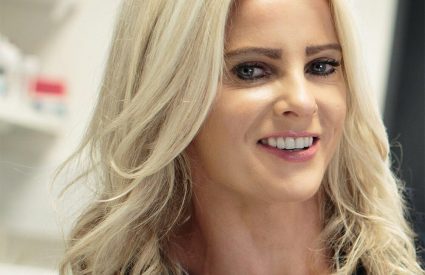
Professor Tara Moore
Tara Moore is Professor of Personalised Medicine at Ulster University, with a wealth of experience in universities and industry partners across the UK, Europe and USA. The culmination of Tara’s contribution to health, well-being and safety and improving people’s lives was recognised with a prestigious Women in Science and Engineering award, presented by HRH Princess Anne. In recognition of her input into standardising education and training for Forensic Medical Officers alongside her role in developing the E Learning Tool for online study for Membership to the Faculty of Forensic and Legal Medicine (MFFLM) Part 1 and Part 2 (Sexual Offences Medicine) examinations, Diploma in Legal Medicine (DLM) and The Society of Apothecaries Diploma in the Forensic and Clinical Aspects of Sexual Assault (DFCASA), Professor Moore was awarded an Honorary Fellow of Royal College of Physicians (London) FRCP, FFLM. Tara remains an active member of faculty staff @Ulster University alongside CEO of male fertility DNA fragmentation testing company Examen in Belfast, Northern Ireland.
Mr Chris Morris
Chris Morris is a qualified dentist who then turned to law and has risen to become one of the UKs leading solicitors dealing with Medical and Dental cases both regulatory, criminal and negligence. He is respected in both legal and medico- dentolegal circles for not only his thorough and robust courtroom skills, but also the efforts to educate practitioners to be safe in this increasingly litigious landscape. He lectures regularly and has been President of the Dental Law and Ethics Forum for 20 years.
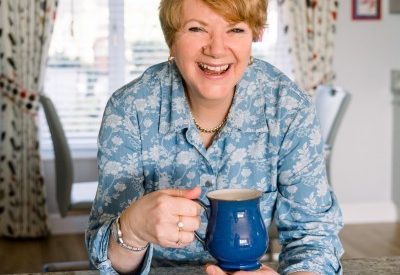
Mrs Mary Newton
Mary Newton is a retired Forensic Biologist who was based in London for 40 years. Mary spent the majority of her career training forensic medical examiners and police in how to maximise forensic evidence opportunities in serious sexual assaults. Mary designed the Early Evidence Kit with this in mind which has been in use for 27 years. These days she is on a speaker circuit giving talks on forensic science to local groups where she now lives in Suffolk.
Dr Guy Norfolk
Dr Guy Norfolk was the founding President of the Faculty of Forensic and Legal Medicine and formerly Consultant Forensic Physician to Avon and Somerset Constabulary. He chaired the Education and Research Committee of the Association of Forensic Physicians and was for several years forensic medical advisor to the Police Complaints Authority. He has published extensively in peer-reviewed journals and is a co-author of a textbook on clinical forensic medicine. In 2009, he was the David Jenkins Professor of Forensic Medicine in 2009. He retired from active clinical forensic medical practice in 2010.
Dr Fiona Perry
Dr Fiona Perry is a Senior Reporting Scientist working for Eurofins dealing with approximately 200 to 250 cases a year involving tests for alcohol, illicit drugs, pharmaceutical drugs and certain poisons (e.g. carbon monoxide) in body fluids. A significant number of these cases are drug facilitated sexual assault allegations. Fiona has been a member of the FFLMFSSC since 16/05/2013 and has supported the FFLM
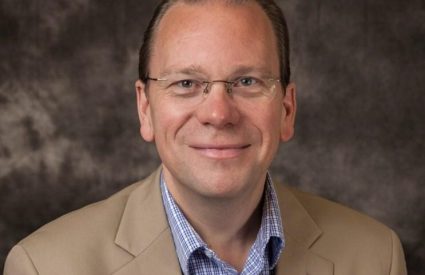
Professor Michael S Pollanen
A trailblazer in Canadian forensic pathology gifted with the intelligence, foresight, determination and drive to effectively acccomplish difficult tasks, aided by a group of empowered and talented professionals he has trained as part of his unselfish attitude to give back to the forensic community that has nutured him and so ensure the continued development of forensic pathology in Canada.
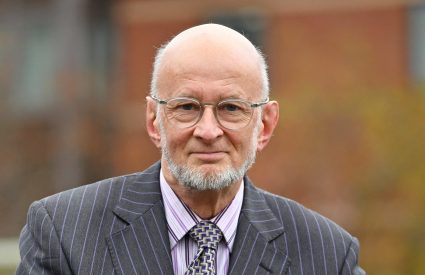
Professor Keith J.B. Rix
BMedBiol (Hons), MPhil, LLM, MD, FEWI, FRCPsych, Hon FFFLM
Keith Rix is a forensic psychiatrist whose involvement in the forensic field began in the 1960s when he lived in hostels in London with ex-offenders and assessed prisoners for hostel admission. He was Visiting Consultant Psychiatrist at HM Prison, Leeds, for over 35 years. He has provided expert evidence to the courts since 1982, including evidence on a pro bono basis in capital cases in the Caribbean and Africa, and he is the author of Expert Psychiatric Evidence. He is now Visiting Professor of Medical Jurisprudence, University of Chester, and Honorary Consultant Forensic Psychiatrist, Norfolk and Suffolk NHS Foundation Trust.
Professor Pekka Saukko
Pekka Saukko, Dr. med. (Vienna, Austria), DMSc, Dr. h.c., FFFLM (Hon), FBAFM (Hon), emeritus professor of Forensic Medicine, University of Turku, Finland; member of the German National Academy of Sciences Leopoldina; honorary member of the Hungarian Society of Legal Medicine, Royal Belgian Society of Legal Medicine, German Society of Legal Medicine and Japanese Society of Legal Medicine
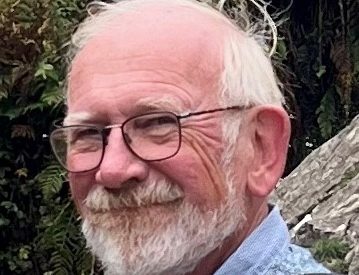
Dr Peter Schutte
Dr Peter Schutte MB ChB FRCP HonFFFLM MRCGP DMJ DA DRCOG was a GP, Hospital Practitioner in anaesthesia and Police Surgeon on the Isle of Wight before joining the Medical Defence Union in London in 1985 as a medico-legal adviser. He was Head of Advisory Services. He became the foundation Treasurer of the Faculty of Forensic & Legal Medicine in 2006, and Registrar from 2011 to 2014. He initiated the Diploma in Legal Medicine. He retired (aged 70) from the MDU in 2018, but remains a Responsible Officer Appraiser for NHS England.
Sir Richard Thompson
Sir Richard Thompson KCVO was an academic gastroenterologist at St Thomas’ Hospital, London 1972-2005, physician to HM the Queen 1984-2005, Treasurer (2003-10) and then President (2010-14) of the Royal College of Physicians. He was a Trustee of several medical charities.
Professor Tim Thompson
Tim Thompson is Professor of Anthropology and Vice-President (Students & Learning) at Maynooth University, Ireland. Prior to this, he was Dean of the faculty of Health & Life Sciences at Teesside University. An award-winning academic, he has spent his career developing new methods and tools to support forensic practice in challenging contexts whilst also practicing around the world. He has published significantly and has produced four books – including Forensic Human Identification: An Introduction and Human Identity and Identification. A Fellow of the Chartered Society of Forensic Sciences, American Academy of Forensic Sciences, Royal Society of Biology and the Royal Anthropological Institute, he was Editor-in-Chief of Journal of Forensic & Legal Medicine. He is an active scientific advisor and consultant for a range of organisations, including governmental, NGOs and charities, universities, health tech companies and the media.
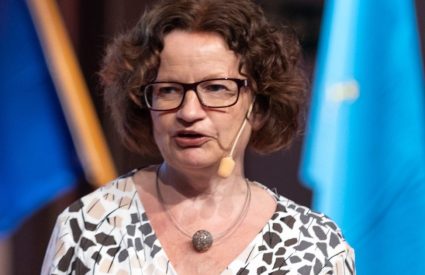
Professor Gillian Tully CBE
Gill has over 30 years’ experience spanning research, casework and regulation in forensic science. She is Professor of Practice for Forensic Science Policy and Regulation at King’s College London, where her research interests include improving the quality and effectiveness of forensic science and improving the interface between science and the law. She also works directly with several UK police forces and provides training and consultancy services in the UK and overseas, to assist with improving the quality, reliability and effective application of forensic science.
From November 2014 to February 2021, she was the Forensic Science Regulator for England and Wales, an independent Ministerial Appointee, responsible for setting quality standards for forensic science in the Criminal Justice System and for advising and challenging Government. Gill has given evidence to multiple Parliamentary Committees as well as providing expert evidence in courts in England & Wales and overseas.
In 2020, Gill was awarded a CBE for services to forensic science.
Mr Peter Walton
Peter Walton initially trained as a police officerIn March 2000 he joined the National Policing Improvement Agency (which subsequently became the College of Policing) rising to Head of Academic Programmes.
Peter was responsible for Higher Education programmes for Crime Scene Investigators and Fingerprint Experts from around the UK based at the National Forensic Centre at Harperley Hall, Durham. He has given numerous international presentations on the use of digital photography in crime scene investigations and pioneered the use of footwear investigation at crime scenes.
For many years a clinical forensic medicine course had been held in Durham and Peter was involved in the merger of that course with a similar course that was run by the Association of Forensic Physicians. The course was subsequently jointly run by NPIA and the FFLM. Further developments of the course led to it receiving accreditation by Teesside University – the first introductory course in Clinical Forensic Medicine to receive university accreditation.
This sound foundation developed by Peter formed the basis of strong links between the FFLM and Teesside University. He was made an Honorary Fellow of the FFLM in 2010.
